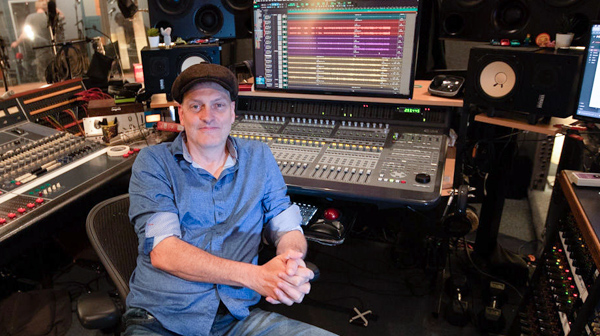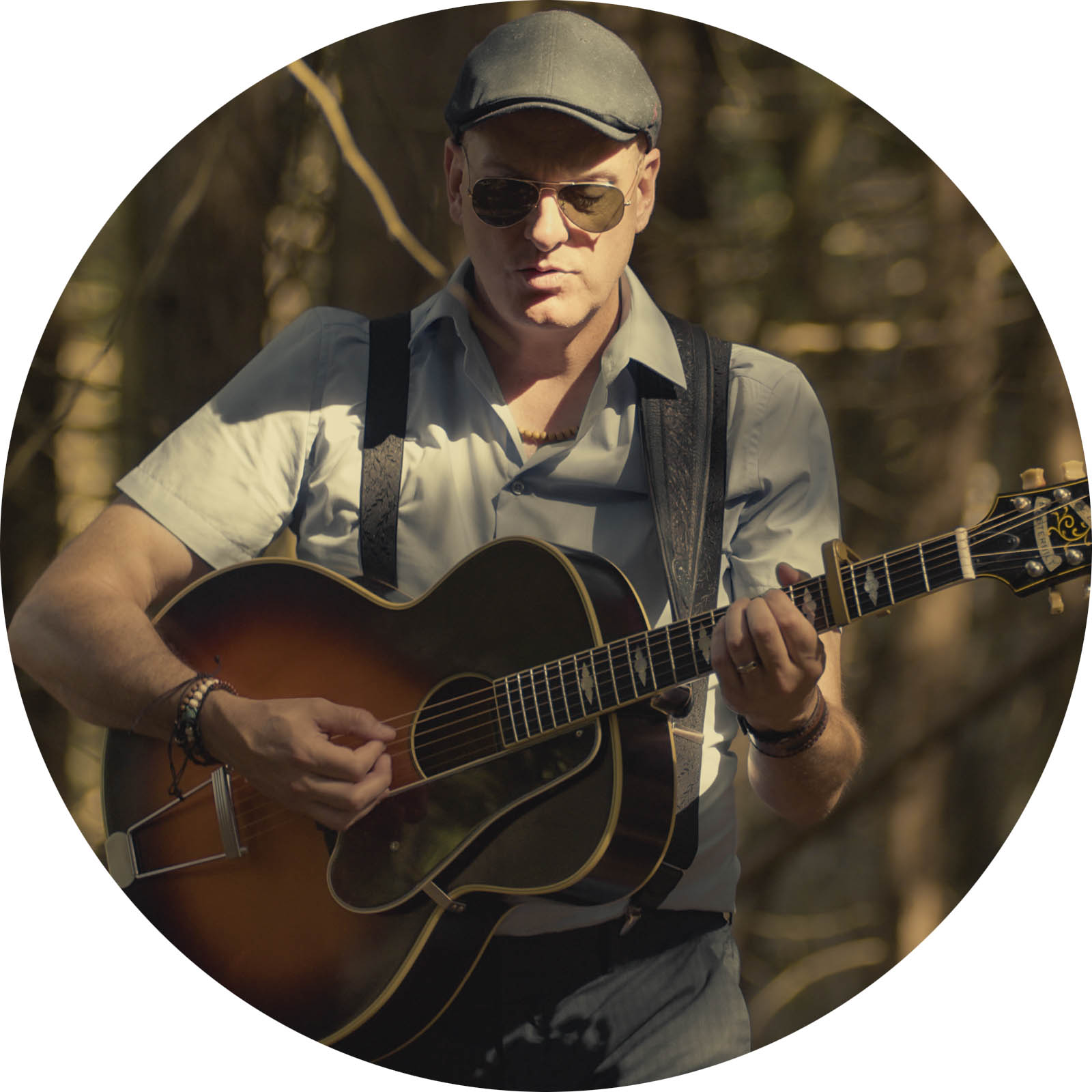
In a way Reggae chose me.

When University of Guelph-Humber instructor Dr. Jason Wilson thinks back to his upbringing in Toronto in the early ‘80s, it is no exaggeration to say that he was raised on reggae.
Growing up in a diverse townhouse complex in North York, Dr. Wilson recalls that reggae was the soundtrack of his adolescence. He heard the genre for the first time at age 10, started to learn to play reggae himself on his organ at 12, and by the age of 14, he had already played his first nightclub gig with decorated reggae group Messenjah (he wasn’t allowed in the bar, but he was allowed on stage).
When you consider that Dr. Wilson also had an almost bizarre number of coincidental connections to legendary musicians in the genre — including a cousin who played keyboards in UB40 — it was almost as if he was destined to discover a love of reggae.
“In a way, reggae chose me,” said Dr. Wilson, an award-winning touring musician who also teaches in the University of Guelph-Humber’s Electives program.
“Reggae has always been part of my life. Of course, I do play other stuff — I’ve gotten pretty deep into jazz and discovered my own Scottish folk roots as well — but the foundation of the music I create is reggae. That’s where I started and what still drives me.”
Given how deep his reggae roots run, Dr. Wilson was a great candidate to document the history of Canada’s contributions to the genre in his book, King Alpha’s Song in a Strange Land: The Roots and Routes of Canadian Reggae.
Based on more than 50 interviews with key figures of Canadian reggae, Dr. Wilson’s book tells the story of how reggae music helped to open a cultural dialogue between newly arrived Jamaican migrants and Toronto locals in the 1970s and ‘80s, while also becoming one of Canada’s most vibrant music scenes.
After receiving the Ontario Historical Society’s 2021-22 Joseph Brant Award for the best book on multicultural history in Ontario, Dr. Wilson talked to us about his own musical roots, the reaction legendary reggae stars had to his book, and the reason Canada holds a special place in the global history of reggae music.
How old were you when you first started playing music?
It started when my dad bought an organ — we didn’t have a car, but we did have an organ in our little townhouse. I was blessed with my mom’s ear for music, so I was able to teach myself to play when I was 7 years old. I was around 11 when I started upright bass and eventually, I became a reasonably competent guitarist, but I was always a keyboardist or pianist first.
When I was 12, I still thought playing in the NHL would be my future. But when bodychecking was introduced when I was 13, I thought: “You know, I really love music.” (laughs)
Do you remember exactly when you first heard reggae?
I was 10. That’s when, in our little townhouse complex at least, we had an incredible influx of Jamaican migrants and they brought their music with them.
A whole range of things happened to me then that made me choose reggae. My best friend was Jamaican and he had two brothers — one was Rupert (Ojiji) Harvey, the lead singer of Messenjah, and the other was Carl Harvey, who was bandleader for Toots & the Maytals.
And then when I was 12, I found out that my cousin played for UB40, and we became very close. UB40 helped me out very much, including introducing me to Jackie Mittoo, one of the fundamental pioneers of reggae. He took me under his wing in the last couple years of his life.
When I saw UB40 for the first time at the Concert Hall in 1983, I had just turned 13. It was life changing. I thought: “OK, this is what I want to do.”
You were obviously deeply knowledgeable about Canadian reggae before you started writing the book, but did you learn anything that surprised you?
I was perhaps surprised – or maybe delighted is a better word – by how involved the reggae community wanted to be in this. This book and the subsequent live shows brought many people together, some who had never even worked together, and some who were, as a result, able to put their differences aside. That was a tremendous success in itself.
I can tell you one story. Jojo Bennett, who was a Jamaican immigrant who started the Sattalites, ordered 10 copies of the book for his family because he was so proud. Unfortunately, he has since passed, but he called me the minute he finished the book. He had me in tears the way he responded to it. I’ll never forget it.
How important are Canada and Toronto more specifically in looking at the story of reggae around the world?
Sadly, Messenjah, the Sattalites, 20th Century Rebels and other Canadian reggae acts never climbed the world’s stage the way Bob Marley or UB40 did, but that does not take away from the crucial importance that Toronto played as a launching pad for reggae in the Western hemisphere.
People have this idea that when Bob Marley was around, Americans loved reggae, but they really didn’t. They didn’t care too much about reggae, but Canadians did. Canadians were far more open to the idea of reggae music much earlier than people were in the United States.
The book is not just about music, though, is it?
Absolutely not. This is meant to be a blueprint of how interculturalism can work, where the bridge is open at both sides and people are invited to cross the bridge. That’s where meaningful relationships can happen.
There are so few places in the world like Toronto. It is such a unique kind of place in terms of that interculturalism — not multiculturalism, but interculturalism, where there’s actual crossover and people cross bridges to each other. There can be some real relationships formed in that scenario where the ethnic frontlines of Toronto are so porous that one culture moves into another pretty easily.
I think that is a beautiful thing that is specific to Toronto.
What does this honour from the Ontario Historical Society mean to you?
It’s a lovely, lovely thing. I’m so honoured and I'm so proud.
I share the honour with all the people who shared their stories so freely. My heart swells to think that people are still discovering the book and still loving it.

